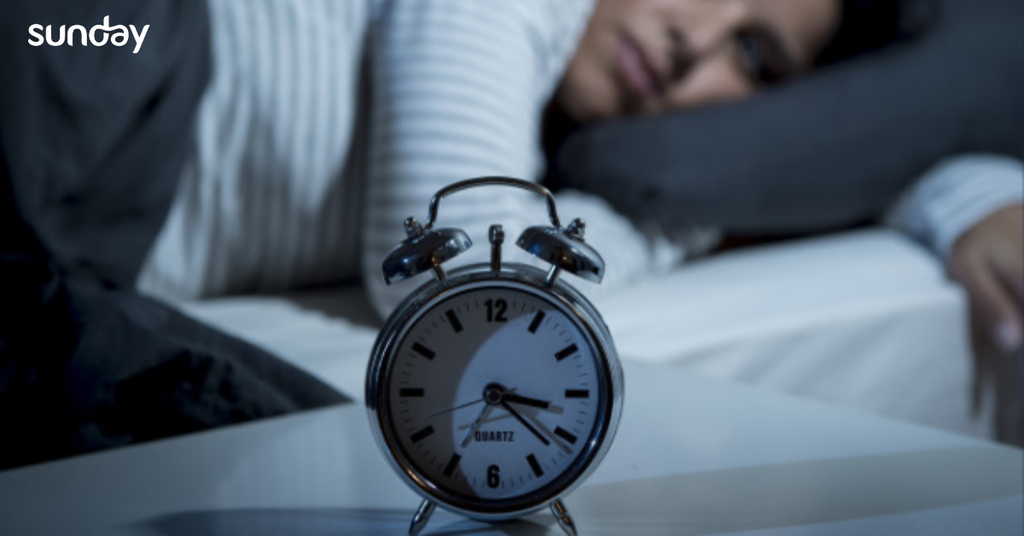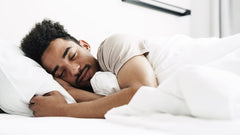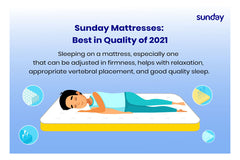
Share about us & get a complimentary Sunday Delight Pillow
As simple as, click on the "share now", share & getting the goodies
 By Alphonse Reddy
By Alphonse Reddy 0 Comments
0 Comments
This is a common concern for many- how to avoid waking up at night and returning to sleep. According to sleep experts waking up once or twice at night is perfectly normal but anything more could indicate an underlying health problem. Multiple night-time awakenings also referred to as “sleep maintenance insomnia” require medical attention and can be managed. The most common reasons for a disrupted night are a disturbed state of mind, pain, sleep apnea, and acid reflux resulting into a sleep debt. So the reasons can vary from internal biological causes to external environment-related stress. In case of health issues, taking appropriate medication along with following a disciplined routine can help sleep better at night.
Here are some ways to help you from waking up at night and wake up fresh every morning:
As sleep is usually disturbed by the urge to visit the loo, try reducing your liquid intake as the evening progresses. Visit the loo before bedtime. Diuretics such as alcohol, coffee, and tea should be entirely avoided in the evenings. Caffeine stays in your system for about six hours while alcohol takes at least three hours to get completely absorbed. Also, alcohol negatively impacts your REM sleep, causing light, restless sleep.
Working out on regular bases will help relax the body and help you sleep deeper at night. Just ensure you don’t work out too close to your Exercise leads to increased body temperature and the post-exercise results in temperature drop, thereby promoting falling asleep. Exercise is also known to reduce nighttime awakening by decreasing arousal, anxiety and depressive symptoms.
Our mobile and TV watching all keep our brain active. It is said what we read and watch especially a few hours to bedtime, stay in our mind subconsciously coming in the way of deep good sleep. What is obviously known is that the artificial blue light emitted from our devices plays with our mind, senses, and brain. Ensure you switch off your mobile at least an hour before sleep time and do not keep any of your gadgets too close to you while sleeping.
Day time naps if long can make it difficult for you to sleep deeply at night. Sleep experts caution against sleeping longer than 30 minutes in the afternoon. Sleeping too long in the afternoon can disturb your sleep cycle. Training your body to sleep once in for all at a fixed time at night is best to ensure you sleep at one stretch throughout.
In case you are dealing with pain, remember while sleeping helps restore the body’s natural functions there is also a good chance of your pain flaring at nighttime.
Here is how you can sleep according to your pain points:
Back pain: Sleep on your side or back using a pillow beneath your knees to take the pressure off from your spine.
Neck pain: Sleep on your side placing a higher pillow under your neck than under the head. Or, sleep on your back with a flat pillow.
Shoulder or hip pain: Lighten the pressure and sensitivity by sleeping on the side that’ s pain-free.
Heartburn: Sleep with a wedge pillow that is moderately firm or on your left side. When you sleep in the right position, make sure you identify the best mattress to buy.

Sleeping position in Islam Sleep science has been gradually building momentum over the past couple...

Mattresses are known to improve sleeping postures and circulation, which is essential for a healthy...

Everyone looks for comfort when it comes to sleeping and relaxing. And mattresses play a...

Choosing the correct type of mattress is the first step if you want a luxurious...

The world of mattress sizes can get your mind out of whack if not adequately...
Still confused? Call us on 080 4749 4649


Comments